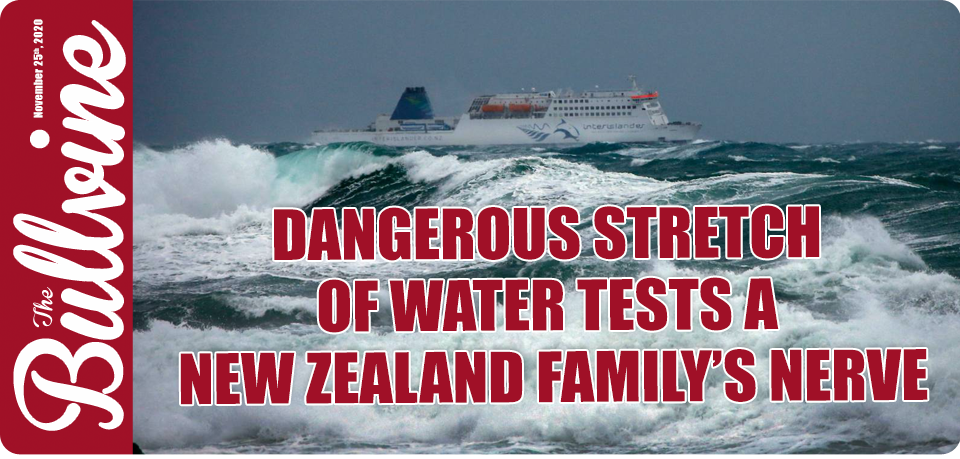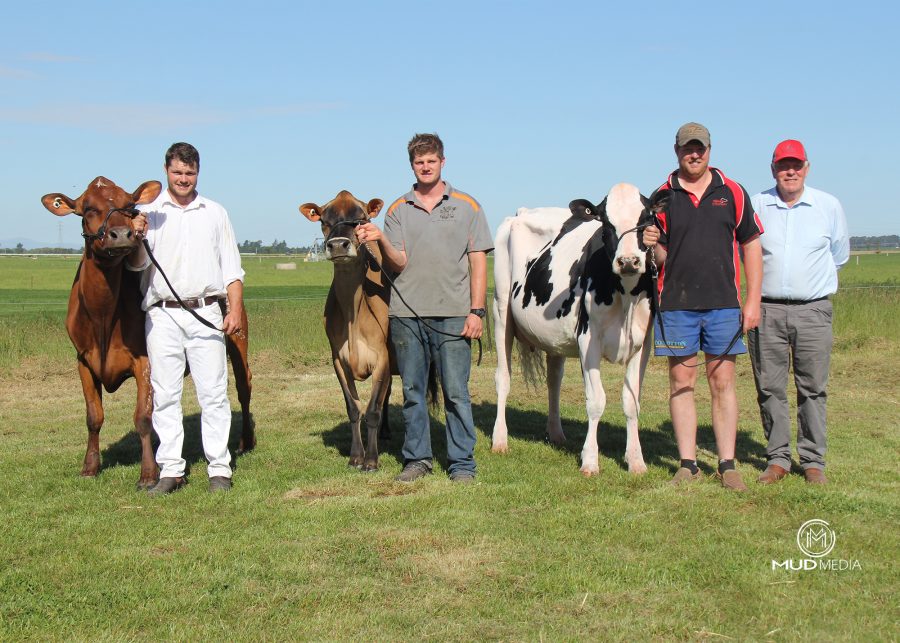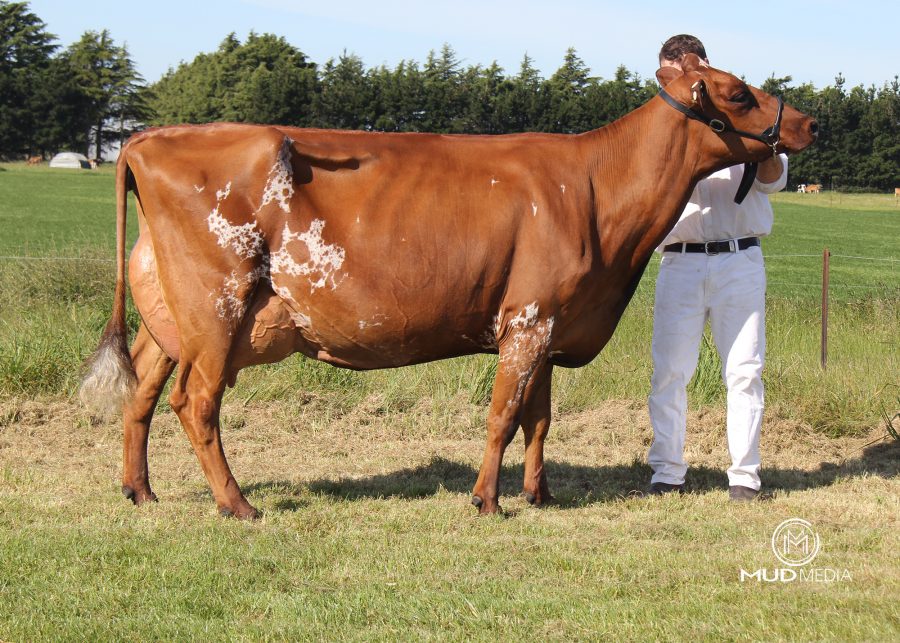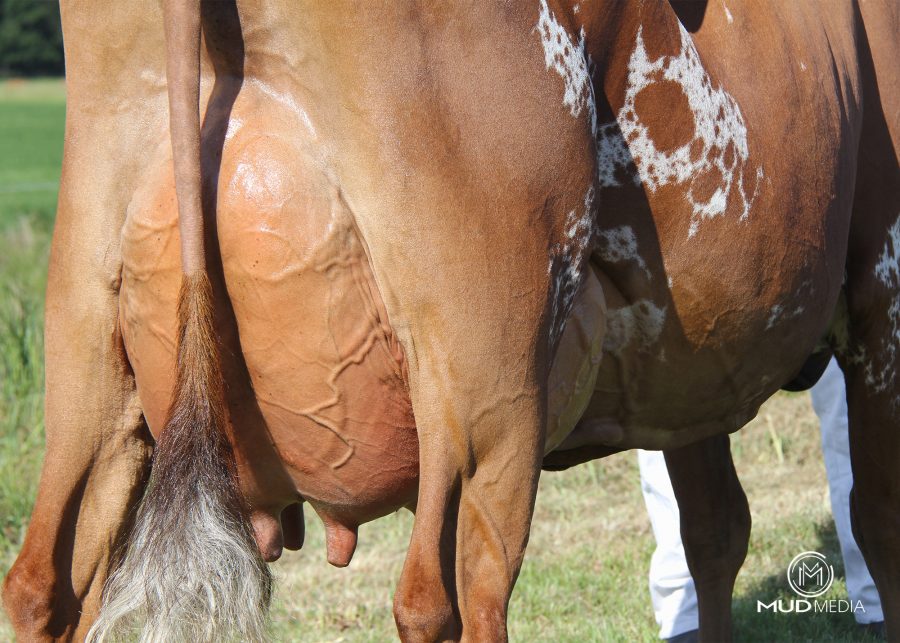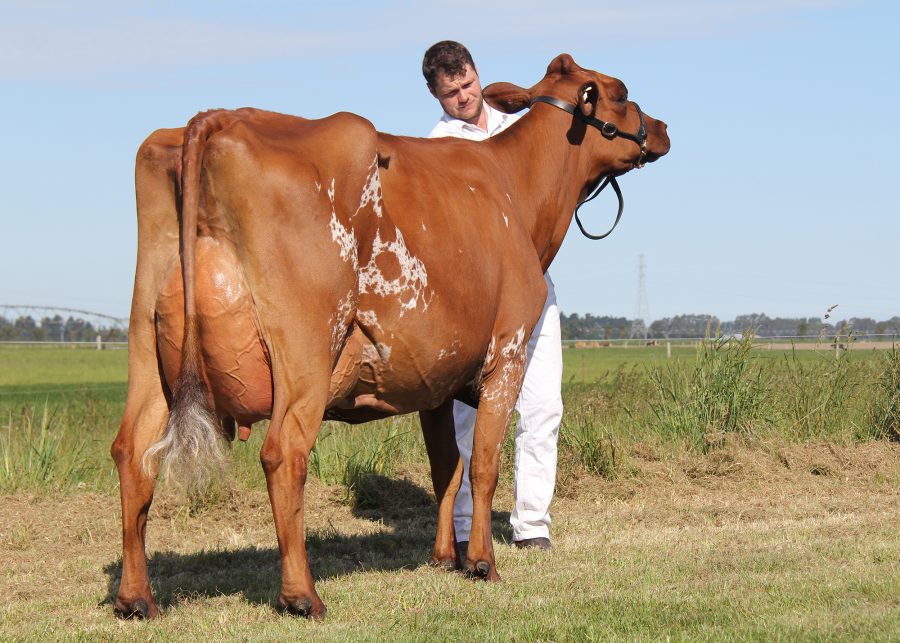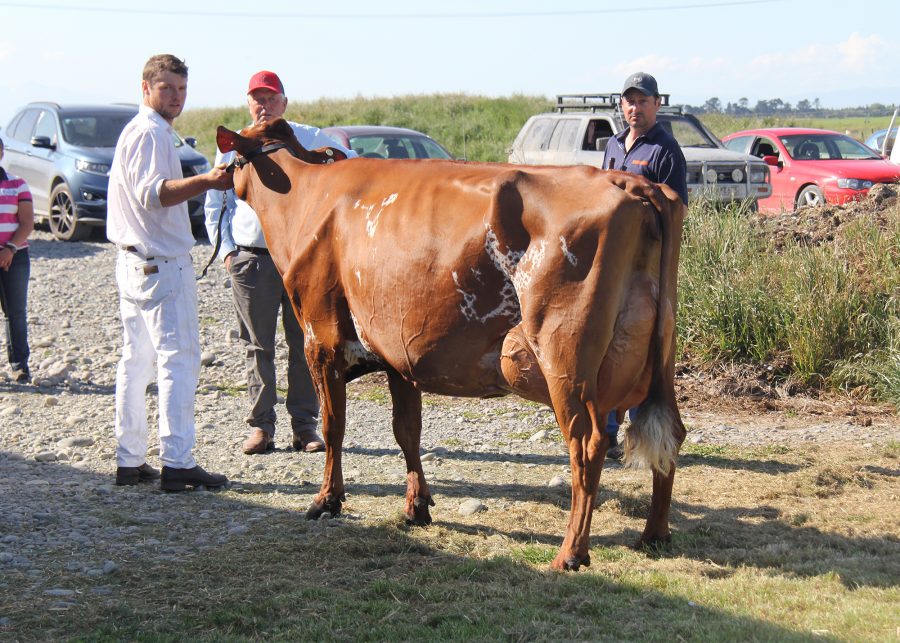When New Zealanders decide to show a cow from the South Island in the North Island, it’s never a decision for the faint-hearted.
There is no comfortable low-centre-of-gravity vehicles, portable milkers or easy way to do almost anything with the cows when they are on the road.
They are usually tied on the trucks. And, the ferry rules prohibit owners from checking on their cattle during the three-and-a-half ferry ride across the Cook Strait between Picton (the top of the South Island) and Wellington (the bottom of the North Island).
Not such a big deal, some may think?
Dangerous waters
However, the Cook Strait is notorious for being one of the world’s roughest stretches of water. It’s part of the westerly wind belt known as the “Roaring Forties”. As the only gap between the mountainous main islands of the country, the strait acts like a huge wind tunnel.
To put that into perspective, the Cook Straight was the scene of two of New Zealand’s worst maritime catastrophes – the 1909 Penguin Disaster – and, the 1968 sinking of the Wellington-Lyttelton ferry, Wahine.
Yet, the Gilbert family, from Mid-Canterbury are preparing tackle the 17-hour (in total) journey with a load that includes Jerseys, Holsteins, and one Ayrshire, who recently won the Canterbury A&P On-Farm show’s Supreme Senior Champion of all breeds.
Four-metre high swells
Brothers, Nick, Michael and Luke – together with their parents, Peter and Anne – collectively milk just over 1200 cows on two farms at Ashburton. They are headed to the Stratford Show in the Taranaki, which carries significant prize money and the tempting title of a “Royal” show.
Michael Gilbert said they have endured a crossing with cows before when the swells have been up to four metres high.
“To be honest, on that particular crossing we were struggling to stay in our seats up top with the other passengers, and we knew that our cows were down there, so it was pretty stressful,” Michael said.
“But, surprisingly the cows seem to handle the ferry crossing better than the rest of the truck trip. They were lying down when we got to them at the end of that trip. But, when we’re on the road, they tend to stand the whole time.”
Michael said they’d had tried breaking the trip up to rest the cows, but it just seemed to work better if they pushed through, and got it done.
No surprises now
And, now that the industry is aware that their Ayrshire, Pukekaraka Elle Delilah, is on the truck with all breed winning potential, the brothers will be working hard to get her settled and ready to take on her counterparts who don’t have to travel as far.
“We already had Delilah pencilled in for Stratford before these results,” Michael said. “It’s going to be a massive show, there are some good Ayrshires in the North Island, and we wanted to see what she’ll look like alongside them.
“Plus, we haven’t been out for two years [because of New Zealand’s decision to eradicate M.bovis], and we’re really ready to get back into it.”
Michael bought Delilah last year within a group of five cows at the Pukekaraka dispersal. She cost him $2500 in a sale, which averaged $1600. He didn’t have her listed in his first picks when he went through the catalogue offered by the Robinson family. But, when he got to the sale that decision quickly changed.
Planned punt
Even though she was dry with no herd test results, he decided the five-year-old, who is sired by UK sire, Haresfoot Elegant, needed to join his 630-cow herd at Ashburton – an hour south of Christchurch. Brookview sires (from the Steiner family at Tokoroa) are the sires two generations behind that.
“She just caught my eye,” Michael said. “I thought she could be a diamond in the rough, if she came together right. And, the reason I had more confidence in her was that I’d always admired the Robinson’s show cows.
“They’ve always had that cut of a cow that suits all breeds. And, if we were going to buy an Ayrshire, she needed to be able to compete in all breeds. As soon as she calved in, I knew I had something special.”
She produced more than 8000 litres in 280 days on her first lactation, and won the Canterbury and national on-farm for her breed age-group last year.
Michael said when she calved in again at the start of September with a heifer by Kingsire, she was producing close to 3kg MS/day extremely fresh. The Canterbury A&P On-Farm was the first and only chance to step her out.
“I hoped she’d be competitive in the all breeds for her age group, but to win the Supreme Senior Champion was a pretty big honour,” Michael said. “Because there haven’t been a whole lot of Ayrshires in Canterbury do that well in a long time (1981).
“And, since we haven’t been to a show ourselves since 2017, it’s felt like a long time between drinks for us.”
Strong family
Delilah’s breeder, Matt Robinson, confirmed that she was from one of their strongest families, which had only been held back by their penchant for delivering more bulls than heifer calves. Delilah’s fifth dam, Pukekaraka Pebbles Dell EX, was Champion All Breeds at the Waihi Show, aged 13.
Matt who is a PE teacher has kept some cows, and he said that Delilah would have been his very next choice if he hadn’t been bound by a ceiling on numbers.
“But, I’m very happy that she has gone to a great home, where the Gilbert family could develop her even more,” Matt said.
“I couldn’t have asked for a better result. If you can’t show a champion, having your prefix on a champion is the next best thing, isn’t it?
“And, for her to get through the All Breeds against some bloody good Holsteins and Jerseys in Canterbury is very cool for our breed, and for our breeding.”
November 28 and 29 will be the day of truth when the Stratford show – which is shaping up as a big show for Down Under – kicks off.
Get original “Bullvine” content sent straight to your email inbox for free.

